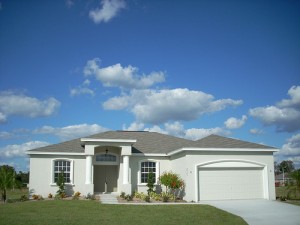 If you’re looking for a mortgage, you’re probably overwhelmed by the complexity and the variety of the lending system. The process can be overwhelming, but it shouldn’t have to be. Use this article as a guide to help you pick the mortgage that’s right for you:
If you’re looking for a mortgage, you’re probably overwhelmed by the complexity and the variety of the lending system. The process can be overwhelming, but it shouldn’t have to be. Use this article as a guide to help you pick the mortgage that’s right for you:
Open versus Closed Mortgages
Open-end mortgages are the more flexible of the two options. They can be paid off at any time without incurring penalty. Terms of open mortgages typically range from six months to one year for fixed rates, or three to five years for variable rates.
Closed-end mortgages are more restrictive in their terms. While you’ll be able to pay an annual prepayment on your principle, you will not be able to pay off your mortgage early without incurring penalty. Terms can range anywhere from six months to ten years.
Which Should You Choose?
The average homeowner generally chooses a closed-end mortgage, as it offers lower interest rates than an open-end mortgage. However, if you’re thinking about relocating or selling your home within the next year or two, a more flexible, open-end mortgage may be right for you. Open-end mortgages are also a good option for people who expect to be able to pay off their mortgage quickly as a result of an inheritance, work bonus, insurance claim, divorce settlement, etc.
Fixed versus Variable Rate Mortgages
Fixed rate mortgages are exactly as they sound: your mortgage rates will remain stable over the current term of your mortgage.
Variable rate mortgages, on the other hand, fluctuate according to the overnight rate set by the Bank of Canada about every six weeks. This means you could see increases or decreases in your monthly mortgage interest rates depending on the overnight rate and the bank’s prime lending rate.
For those who cannot financially handle mortgage rate spikes or simply want peace of mind, fixed rate mortgages are a good option because you’ll know exactly how much you’ll be paying each month. However, variable rate mortgages are currently lower than fixed mortgage rates, and are expected to stay that way in the near future, meaning that you could see big savings in the amount of interest you pay over the next couple years. And, you can always convert a variable mortgage to a fixed mortgage later on if rates increase dramatically.
Choosing Your Mortgage Term
Your mortgage term is the number of months or years you’ll pay a specified interest rate. It is not to be confused with amortization, which is the number of years it will take to pay off your mortgage in full.
Short-term mortgages typically last two years or less and are a good option for homeowners who believe rates will drop at the time of renewal or who expect to be in a better financial position in the future to refinance their mortgage. Long-term mortgages, especially fixed-rate long-term mortgages, are desirable when current rates are low and you want to lock into that rate for the long haul.

I’m always shocked by how many other products they try to roll out beyond just a 30 year fixed mortgage. I like to kick it old school with my mortgage 🙂
We’re considering refinancing with an adjustable rate mortgage if our house doesn’t sell within the next few months. The rates on a 5/1 ARM are remarkable right now and it would save us quite a bit of cash if we amortize it over 30 years.
We’ve always had fixed rates (ours is 3.37% now) because I’m terrified of the what if’s! Thankfully, our credit is now good enough that we were able to get this crazy low rate that is guaranteed for the life of our loan. That gives me a bit of peace of mind.
-M
Nice Rate! I thought mine was low at 3.6%
I personally am with a 30 year fixed. Inflation should make my payments pretty low by the end of my term 🙂
I think if you have a chance, you should lock in the low interest rates available right now. They are (again…I have to stress this to everyone because everyone seems to have an opinion on it and if they don’t they flat out tell me I’m wrong…) definitely below inflation, and I don’t see inflation going down anytime soon. It’s essentially free money.
In the past I’ve had a fixed rate and a adjustable rate mortgage. I had an adjustable rate mortgage in Texas, because I knew in 5 years I wanted to leave and move somewhere else. For me this worked out great and I saved a ton of cash.
Although I can’t recommend them because they are so risky (especially today when rates are so low). Today, I operate on a fixed rate mortgage and recommend people take the lowest term they can afford and not be house poor. (Hey, one can always make extra payments and pay it off early)
I can see the value in a ARM if you are moving soon, but I’ve always had a fixed rate and intend to stay put for a long time. We’re at 3.25 right now, so pretty happy with that.
We just chose a fixed-rate mortgage because we have no idea how long we will be staying at the property and I feel like that it isn’t a bad choice right now, considering how low the rates are I can only see them going up from here sooner than later.